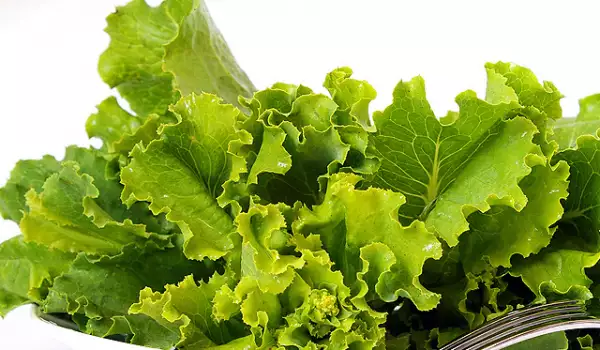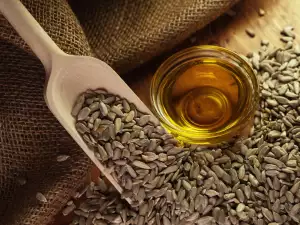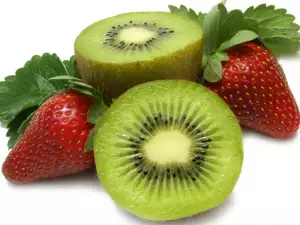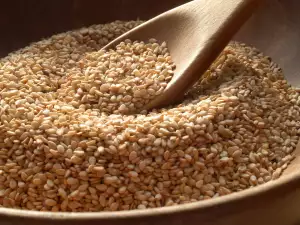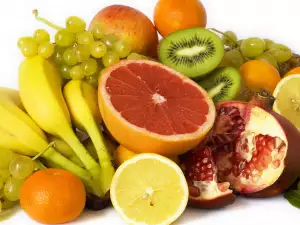Vitamin K is also known by the name phylloquinone and is an antihaemorrhagic vitamin. It occurs in two varieties - K1 and K2. Vitamin K1 is synthesized by intestinal microorganisms. Vitamin K is involved in coagulation. Specifically, in the presence of vitamin K and prothrombin prokonvertin proteins that play a key role in stopping the bleeding are formed. Vitamin E neutralizes the action of vitamin K, so it should not be taken by people treating coagulation diseases.
Vitamin K in plants takes the form of phylloquinone and in products of animal origin menaquinone. Vitamin K2 comes in the class of substances identified as vitamin K. They are also commonly known menakvinones. Vitamin K2 is a fat-soluble vitamin that is naturally synthesized in the digestive tract of the bacteria that is part of the natural intestinal microflora.
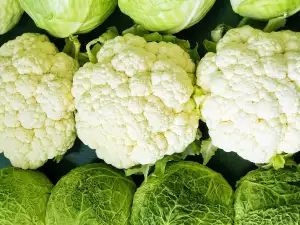
Functions of Vitamin K
The main function of this fat-soluble vitamin is the production of prothrombine, which is involved in blood clotting and helps to prevent internal bleeding. Menadione can be used for a heavy menstrual flow. If there are frequent nosebleeds or bleeding in superficial wounds goes on too long, take vitamin K.
People who are taking oral anticoagulants because they have received a heart attack, stroke, or clots in the legs, are advised to adopt relatively constant daily intake of vitamin K. Vitamin K should not be taken by people dealing with hard fitness and bodybuilding, or taking steroids . They overload the liver, so it is beneficial to take vitamin C, which maintains the liver and promotes its normal functioning.
Mendione has an insignificant, but none the less a role in the transformation of glucose into glycogen. The human body needs small amounts of vitamin K and deficiency rarely occurs. The intestines have the ability to produce it, and it is stimulated by yoghurt.
Just a spoonful of yogurt a day is enough to ensure normal content. In rare cases, a shortage of colitis occurs. Enemies of vitamin K include aspirin, radiation and thermal processing of food. In their natural forms, vitamin K is non-toxic, but excessive intake of the synthetic menadione version is not recommended.

Recommended daily doses of Vitamin K
Men - 79 micrograms
Female - 59 micrograms
Safe Upper Limit: 30, 000 micrograms
Benefits of Vitamin K
The most important function of vitamin K is that it helps in blood clotting. This is done through a complex chemical reaction that converts prothrombin to thrombin in the blood. The result of this reaction is the formation of a blood clot, which prevents bleeding. For this reason, people who are on thinners (anticoagulants) are instructed to limit their intake in vitamin K.
Vitamin K is essential to prevent internal bleeding and bleeding. It helps in reducing the excessive menstrual flow in women. This vitamin is essential for the normal functioning of the liver. It is also involved in the activities of energy-producing tissues, especially those of the nervous system.
Vitamin K helps the body absorb calcium minerals. Recent studies have shown that vitamin K can help prevent or treat osteoporosis and the loss of bone density. If you have a family history of osteoporosis, it is important to make sure that you miantain healthy levels of vitamin K.
Recent studies have shown that vitamin K also has preventive and treatment benefits for cancer patients. Several human studies have shown that vitamin K may have anticancer effects. Vitamin K also prevents the hardening of arteries, which helps in the prevention of heart disease and heart failure.
Vitamin K2 is more effective than vitamin K1 in relation to bones. In it, unlike vitamin K1, effects that reduce harmful cholesterol and inhibits the development of atherosclerosis were observed. Vitamin K2 can prevent fractures and maintain lumbar bone density in osteoporosis. Vitamin K2 combined with vitamin D and calcium are used in the treatment and prevention of osteoporosis.
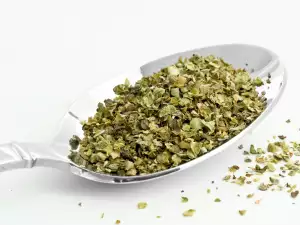
Sources of Vitamin K
Vitamin K is formed by intestinal bacteria, but vitamin K additionally comes from food. Vitamin K can be obtained from cod liver oil, liver, eggs, milk , yogurt, prunes, soybeans , squash , tomatoes , strawberries and carrots. Vitamin K is found mostly in the leaves of wild chestnut.
It is most commonly found in green leafy vegetables such as spinach, nettles, cauliflower, alfalfa, green beets, peas, parsley, onions, okra, lettuce, broccoli, Brussels sprouts, cabbage, sea kelp , green turnip, asparagus, dandelion and chicory . Significant doses of vitamin K are found in dried spices such as basil , celery flakes, coriander , marjoram , oregano , parsley, thyme .
Deficiency of Vitamin K
Vitamin K deficiency is rare in humans, but is common in newborns and in people with intestinal problems and those taking antibiotics for long. Hypovitaminosis K occurs with delayed clotting during an injury and easier formation of subcutaneous and internal bleeding due to injury. The most common diseases that deficiency of vitamin K brings about are colitis, slow blood clotting and bleeding.
